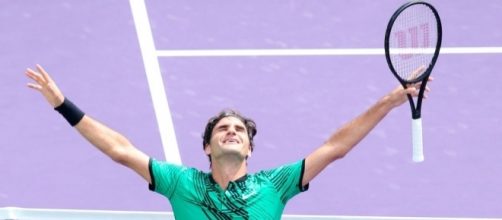At age 36, Roger Federer has brought new excitement to the tennis world. January 2017, as the 17th seed, he climbed a tough ladder to beat Rafael Nadal in six sets to win the Australian Open. A little more than two months later as a 9th seed, he met and beat Stan Wawrinka to clinch the championship at the Indian Wells Masters. Less than two weeks later and seeded 4th, he once again pounded past Nadal to win the Miami Open, securing his third win in three months. Federer is on top of his game.
Last week, he verbalized the possibility of skipping the upcoming french open.
What would bring an athlete who has done nothing but win to opt out of a chance to pick up another golden tennis ring?
With youth no longer on his side, caution may need to be
In July of 2016, Federer announced that he would skip the remainder of the season to allow extended time to recover from an injury. His health during the early part of the season had been tenuous at best, and his 2016 record wasn't up to his career standards, due to injury, illness, and age.
He backed off of competitive tennis and grabbed several months of rest in an attempt to regroup. He spent six months away from the professional circuit, returning in 2017 at the Australian Open. His stoppage time allowed for his body to recover and for him to return to a phenomenal level of play.
However, though the level has returned, he may be more closely monitoring the amount of championship tennis he participates in in order to maintain success.
Why consider skipping the French Open?
Federer holds 18 Grand Slam titles with only one French Open win in 2009 (Australian Open 5, Wimbledon 7, US Open 5). He has only made it to the final at Roland-Garros once since his win and was absent due to his injury last year. His clay court game has never been his best weapon.
If his plan is to be strategic about how often he plays and which tournaments he enters, skipping the French Open makes sense. It has not been the location of his highest success rate in the most recent past nor in his overall career.
Thus his hints about not being there are not surprising if he is selecting tournaments based on some late career strategy.
But starting a year winning the Australian Open presents him with what could be Federer's final opportunity to win a true Grand Slam (all four slams in a calendar year), something that has evaded him in his career.
Join @rogerfederer, @JohnIsner and me for a night of world-class tennis benefiting the Roger Federer Foundation: https://t.co/bktvWCZwnO pic.twitter.com/briA13LNcB
— Bill Gates (@BillGates) April 8, 2017

